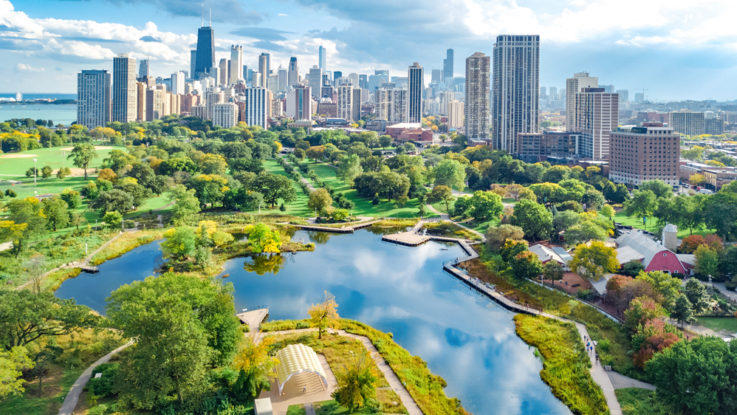
A brownfield on Chicago’s South Side is being transformed into a renewable energy facility and urban agriculture campus. The project is co-led by two nonprofits, developer Green Era and urban farms owner Urban Growers Collective. The nine acre site will include an anaerobic digester (AD) to process food waste, a depackaging operation, community education center, farm, and high-tech greenhouse.
The anaerobic digester will be fed with food scraps, sourced from food manufacturers, distributors, and haulers. This will be separated from packaging and made into a pumpable slurry that will be fed to the digester to produce biogas. The biogas is then cleaned to pipeline quality renewable natural gas (RNG) to be injected into the grid. Digestate that remains from the process will be made into a compost that meets finished compost standards, for use on the farm and also for sale to the community. The operation should be able to process about 85,000 tons of feedstock a year; enough renewable natural gas for pipeline injection to replace over 1 million gallons of gasoline per year; and approximately 30 cubic yards of compost a day.
Along with growing food and generating gas, the site will focus on community education, offering visitors the chance to learn about the entire food production cycle. The project will also include a community education center, a commercial teaching kitchen, meeting spaces, and food and nursery retail space. Outdoor facilities will include a greenhouse for controlled-environment growing year round, outdoor ecological areas, a walking trail, and an open-air amphitheater.
“We want to demonstrate tangibly what the new green economy really means. And what it means [in this case] is creating new jobs, renewable energy, and food; and diverting organics from landfill in an urban area that has been undeserved,” says Jason Feldman, co-founder, Green Era Sustainability.